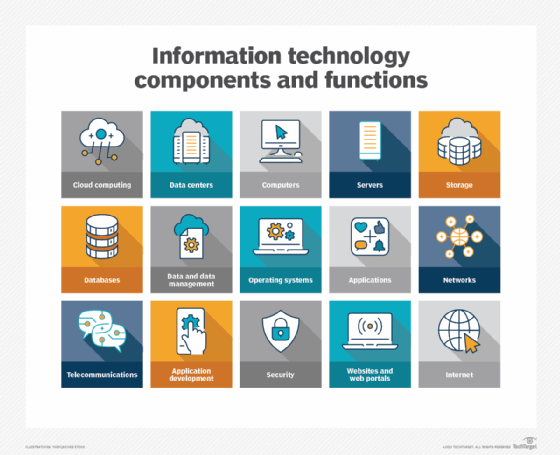MCSA (Microsoft Certified Solutions Associate)
What is MCSA (Microsoft Certified Solutions Associate)?
MCSA (Microsoft Certified Solutions Associate) was a certification program offered by Microsoft and intended for people seeking entry-level jobs in an information technology environment. It supplanted the defunct Microsoft Certified Systems Administrator certification and was a prerequisite for pursuing more advanced Microsoft certifications.
However, the MCSA certification was retired on Jan. 31, 2021, following Microsoft's move away from qualifications connected to specific Microsoft products and toward qualifications that are more aligned with common job roles, such as Azure Developer Associate, DevOps Engineer Expert, and Azure Security Engineer Associate.
The MCSA certification enabled IT professionals to validate and demonstrate their knowledge about Microsoft products. It was an entry-level certification and, therefore, did not specify any particular eligibility criteria for individuals pursuing it. Furthermore, individuals who earned the MCSA credential were eligible to seek higher-level and more complex Microsoft certifications, including the MCSE (Microsoft Certified Solutions Expert) certification.
Individuals holding the MCSA certificate commonly held IT job titles like the following:
- Desktop support specialist.
- Network administrator.
- Microsoft systems administrator.
- Database administrator (entry-level).
- Computer network architect.
Types of MCSA certifications
Prior to 2020, Microsoft offered these MCSA certifications:
- MCSA: BI Reporting.
- MCSA: Microsoft Dynamics 365 for Operations.
- MCSA: SQL 2016 BI Development.
- MCSA: SQL 2016 Database Administration.
- MCSA: SQL 2016 Database Development.
- MCSA: SQL Server 2012/2014.
- MCSA: Universal Windows Platform.
- MCSA: Web Applications.
- MCSA: Windows Server 2012.
- MCSA: Windows Server 2016.
Many of these certifications and their associated exams retired on June 30, 2020, with the remaining retiring on Jan 31, 2021.

MCSA certification training
When the MCSA certificate was available, candidates could choose from two basic options for preparing for MCSA certification exams.
1. Self-study
This option was ideal for candidates who preferred to prepare on their own, without instructor-led or classroom study. A variety of resources existed for those who chose this approach, including books, video courseware and independent resources, such as YouTube videos. Many training companies also offered practice and mock exams to prepare for the credential.
2. Instructor-led training
Microsoft-authorized training centers, worldwide, offered live and online courses for most of the MCSA exams. These courses aligned directly with the exam material and provided useful and thorough preparation for pursuing the credential.
MCSA certification retirement
Microsoft certification programs have historically evolved to reflect changes in technology and associated job roles. Microsoft also aims to provide relevant and up-to-date certifications that enable individuals to meet the criteria for critical job roles and enable organizations to pursue their digital transformations goals with qualified personnel.
For these reasons, MCSA certifications tied to older Microsoft products, such as Windows 7 and Windows Server 2008, were retired several years ago, and the certification itself was retired in early 2021.
In 2018, Microsoft announced that it would be retiring many MCSA certifications and replacing them with role-based certifications. In March 2020, the company announced that all the remaining exams associated with MCSA would be retired as of Jan. 31, 2021.
On the same date, Microsoft also retired two other certifications: MCSD (Microsoft Certified Solutions Developer) and MCSE (Microsoft Certified Solutions Expert). In the retirement announcement, Microsoft clarified that training content related to these certifications may continue to be available.
Prior to the MCSA's retirement, candidates could receive the certification if they completed the required exams before the certification's expiration date. And those who had already achieved the MCSA certification were allowed by Microsoft to keep it. The credential remained on the holder's Microsoft transcript in the active section for two years starting from June 30, 2020. After June 30, 2022, the certification was moved to the inactive section of all holders' transcripts.
Equivalents of MCSA
When announcing the retirement of the MCSA certification, Microsoft recommended MCSA certificate holders update their profiles with a relevant role-based certification. To achieve a certification of their choice, individuals were free to pursue multiple paths.
For example, they can take the MCSE Core Infrastructure path, which includes certifications like the following:
- Azure Administrator Associate.
- Azure Solutions Architect Expert.
- Azure Security Engineer Associate.
Those who are more interested in a role related to Microsoft 365 can pursue credentials like the following:
- Teams Administrator Associate.
- Messaging Administrator Associate.
- Security Administrator Associate.
- Enterprise Administrator Expert.
Other possible paths include the following:
- MCSE: Data Management and Analytics.
- MCSD: App Builder.
- MCSE: Business Applications.
Many courses support these paths, including the following:
- Azure Data Engineer Associate.
- Azure AI Engineer Associate.
- Azure Data Scientist Associate.
- Azure Developer Associate.
- Dynamics 365 Finance Functional Consultant Associate.
- Dynamics 365 Sales Functional Consultant Associate.
- Dynamics 365 Field Service Functional Consultant Associate.
It's important to note that Microsoft does not provide a 1-to-1 equivalent replacement of the now-defunct MCSA certificate. However, individuals can pursue any of the above new role-based certificates depending on their job interests and roles.
Those working in, or wanting to work in, solution areas, like Azure apps, Azure infrastructure, artificial intelligence, data management and analytics, will benefit the most from Microsoft's new role-based courses, exams and credentials.
A full list of all these role-based certificates is available on Microsoft's credentials website.
Check out the best entry-level tech jobs, and explore the most in-demand tech jobs. Read about the differences between certification vs. degree, and see which is better for your career.